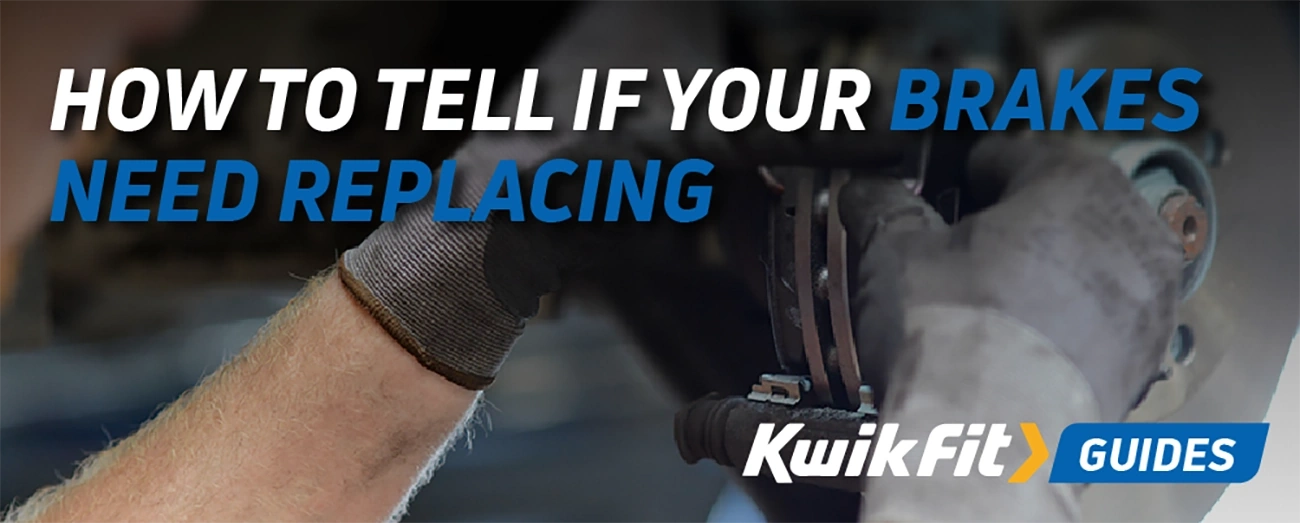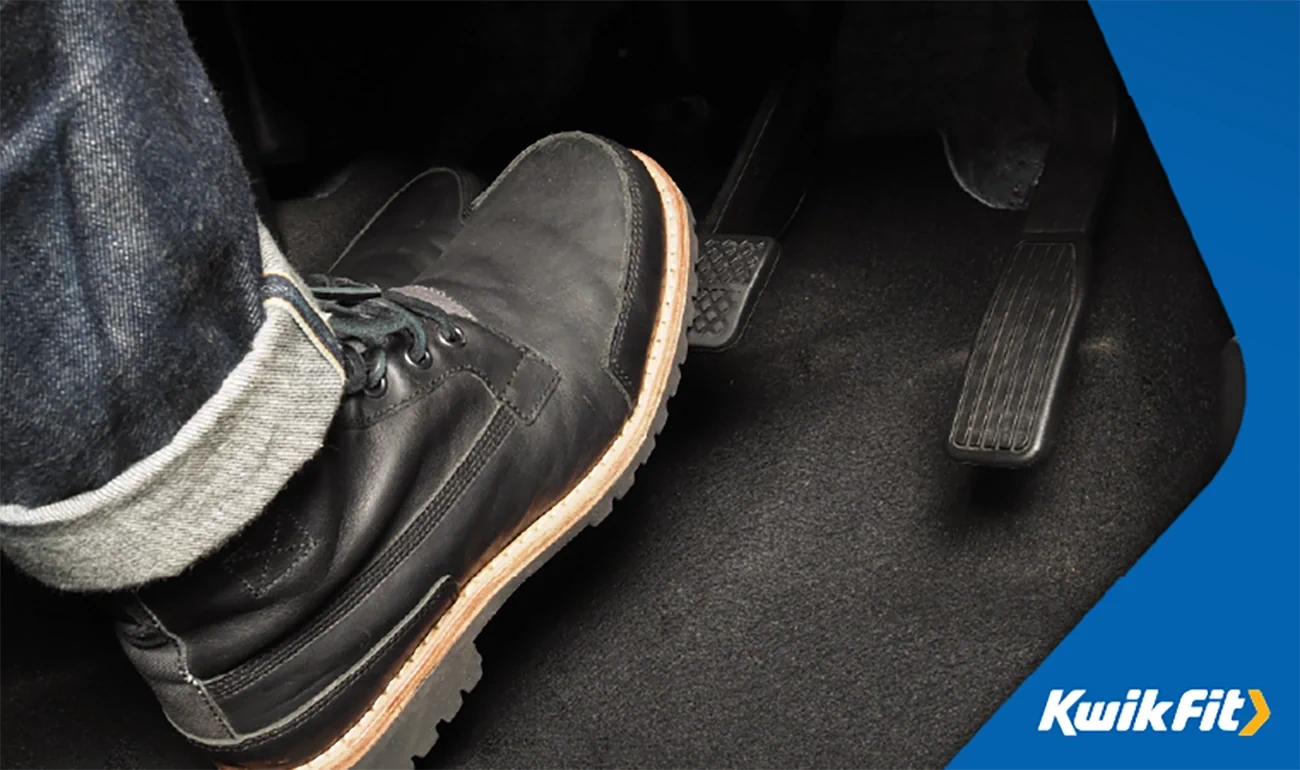How to Tell if Your Brakes Need Replacing
A 9-step guide to how you can tell if your brakes need replacing.

- A shaking steering wheel when braking is often a sign that your brakes are warped or worn.
- Check the brake pad thickness. If they're less than a quarter-inch thick, it's time for a replacement.
- Watch out for grinding noises. This suggests that your brake pads are completely worn out.
- If your brake pedal feels spongy, sticks to the floor, or is less responsive, there may be an issue with the brake pads.
- If the brake warning light on your dashboard is showing, have your brakes checked immediately.
- If your car pulls to one side when braking, it could indicate uneven brake pad wear or a calliper issue.
- Check the brake fluid. Low or dirty brake fluid can cause braking problems and indicates the system needs attention.
- A burning smell after using the brakes heavily, like on a steep hill, may mean your brakes are overheating and need inspection.
- If your vehicle takes longer than usual to stop, your brake pads or discs might need replacing.
Braking components and pads are one of the most important safety features of your vehicle, ensuring you can stop quickly and safely in many conditions. When pressing the brake pedal, the pads, which are housed within the calliper, press against the brake disc. This creates the friction needed, resulting in your car coming to a stop.
Given their critical role, maintaining your brake pads is essential for road safety. Over time, they wear down and need regular checks to ensure they continue to function effectively, safeguarding you and others on the road.
Knowing how long your brake pads will last, and when to replace them, can help you stay proactive about your vehicleís safety. While most manufacturers estimate a lifespan of 25,000 to 60,000 miles, several factors can influence this, which we'll explore in more detail below.
Driving style and condition
As we said above, how and where and how you drive also impacts the longevity of your brake pads. Itíll come as no surprise that the more miles you clock up behind the wheel, the faster you can expect your brake pads to deteriorate. Each time you put your foot down to slow your vehicle, youíre causing additional wear. This logic also applies to other parts of your vehicle such as the tyres and suspension.
However, itís not only the distance you travel that affects how quickly these components degrade. The types of roads you tend to travel on and your driving style will also have a big impact on wear and tear.
If you make most of your journeys on motorways, you should find that you cause less damage than if you spend a lot of time driving around cities and making shorter trips. This is simply because, on motorways, thereís less stopping and starting. The number of passengers and the loads you carry in your car will have an impact too. The heavier your vehicle is, the more strain youíll place on your braking system.
Consider your driving style as well. If youíre heavy-footed on the pedals and tend to stop suddenly, you can expect to cause more damage to your brakes than if youíre cautious, anticipate the traffic ahead and lower your speed gradually in advance. Meanwhile, when you see junctions, roundabouts or turnings ahead and the road conditions allow for it, itís beneficial to take your foot off the accelerator and start to slow down before you have to apply the brakes.
You may be surprised by the impact these factors can have on the longevity of your brake pads. Whereas a set may last you upwards of 60,000 miles if you mostly stick to motorways and drive sensibly, you could find you need to replace these motoring must-haves after just 25,000 miles or even less if you predominantly travel in town or you have a habit of driving aggressively or erratically.

Brake pad maintenance
To get the most miles out of your brake pads, you should consider the best ways to maintain them. Having your brake pads checked once a year and replacing them if necessary is crucial for your safety and the longevity of the other braking components.
Make sure you also check your brake fluid regularly and listen out for warning signs surrounding your braking, including noises, slower braking times, or an unusual feeling when pressing the brake pedal.
When should you replace your brakes?
Knowing when to replace your brakes might seem like something best left to the experts, right? Well, not necessarily. While you should leave any safety-related decisions down to the professionals ó especially when it comes to your brakes ó there are some tell-tale signs that let you know it is time for a replacement soon.
Look for lights
Many newer models of car are fitted with sensors that will tell you if the front or rear sets are getting worn down to below a safe level. If you have a vehicle like this, keep an eye out for the relevant warning light on your dashboard. If your car doesnít have these sensors, youíll need to make sure you get your brake pads checked on a regular basis.
Find out what to do when your brake light comes on here.
We recommend that motorists whose annual mileage is around 8,000 miles or more a year should get their braking systems assessed at least twice a year, before long journeys and ahead of MOTs.
Listen for grinding sounds
Whenever youíre driving, listen out for a screeching or grinding sound when you slow down or stop. This is a strong indication that you must replace these vehicle components. Also, if the brake pedal vibrates when you depress it, this may signify that the pads are warped due to heat and need to be replaced.
Feel for movements
Another tell-tale sign of damage is your car pulling to one side when youíre driving. If your car pulls to the side when you drive, especially when you brake, it is likely to have a problem with the braking system. This might take the form of a calliper that is sticking or a faulty wheel cylinder.
What to do when you need a brake replacement?
If you spot any of the warning signs above and think itís time to replace your carís brake pads, itís important to go to a professional technician. Always remember that these vehicle components are essential when it comes to safety, so they must be fitted by a trained expert. Bear in mind that if you have new brake pads fitted, youíll need to make sure they Ďbed iní. Your technician will be able to explain this process to you and provide you with advice on how to do it. For safety, drive with extra care and attention for the first 300 miles or so until these new pieces of gear have bedded in properly.
Trust Kwik Fitís Brake Specialists
At Kwik Fit, we have over 600 brake specialists across the country ready to ensure your vehicle's braking system is in optimal condition. Whether youíre hearing unusual sounds, experiencing reduced responsiveness, or simply havenít had your brakes checked in a while, our experienced team is here to help.
We conduct inspections to identify any issues, from worn pads to potential brake fluid leaks. If youíre concerned about the state of your brakes or suspect you may need replacements, book an inspection with our friendly and knowledgeable technicians at your local Kwik Fit centre, and drive away with peace of mind.






